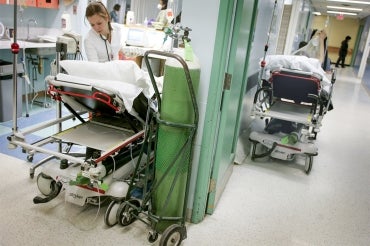U of T experts speak to Globe and Mail about Canada's move to active detection of coronavirus cases

Published: February 28, 2020
As the number of cases of COVID-19 rises around the world, Canadian health officials say they will start actively looking for novel coronavirus cases.
Health experts at the University of Toronto told the Globe and Mail that means it’s time for Canada’s provinces to move their focus from testing patients who come to hospitals and clinics with symptoms to a more proactive testing regime.
“It’s basically canary in the coal mine surveillance,” said David Fisman, a professor and head of the epidemiology division at U of T’s Dalla Lana School of Public Health, describing an approach that would see all patients who visit certain clinics in high-risk cities like Toronto and Vancouver be tested. “You pick a few places you think are likely to be where the thing shows up and you focus on them.”
Read the latest coronavirus update from U of T
Read a coronavirus FAQ for the U of T community
However, such an approach would create challenges when it comes to managing laboratory workload and preserving crucial testing equipment, said Alison McGeer, a professor at the Dalla Lana School of Public Health, Faculty of Medicine and director of the Infectious Diseases Epidemiology Research Unit at Mount Sinai Hospital.
“It’s a real challenge to try to balance all of those things,” McGeer told the Globe and Mail.



